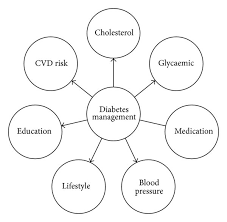Evidence-based practice (EBP) is a problem-solving approach to clinical practice that integrates the best available research evidence with clinical expertise and patient values.
Why is EBP Important in Diabetes Care?
Diabetes is a complex chronic condition that requires ongoing management. EBP ensures that nurses and other healthcare providers deliver care that is:
- Effective: Based on the best available research evidence.
- Efficient: Utilizing resources wisely.
- Patient-centered: Tailored to the individual needs and preferences of each patient.
- Safe: Minimizing the risk of adverse events.
Key Components of EBP in Diabetes Care
-
Ask a Clinical Question:
- Clearly define the clinical problem or question.
- Use the PICO format: Patient, Intervention, Comparison, Outcome.
-
Search for Evidence:
- Utilize reliable databases like PubMed, CINAHL, and Cochrane Library.
- Employ effective search strategies to identify relevant research articles.
- Critically appraise the quality of the evidence.
-
Critically Appraise the Evidence:
- Assess the study design, methodology, and validity of the findings.
- Consider the level of evidence and the strength of the recommendations.
-
Apply the Evidence to Practice:
- Integrate the findings into clinical practice guidelines and protocols.
- Develop evidence-based interventions and protocols.
- Share the evidence with colleagues and patients.
-
Evaluate the Outcomes:
- Monitor patient outcomes and assess the impact of the EBP interventions.
- Use quality improvement methods to identify areas for improvement.
- Share the results with the healthcare team and the broader community.
Challenges and Opportunities in EBP for Diabetes Care
- Lack of High-Quality Evidence: There is a need for more rigorous research studies, especially in diverse populations.
- Complexity of Diabetes Care: The multifaceted nature of diabetes can make it challenging to apply EBP.
- Time Constraints: Healthcare providers often face time pressures, making it difficult to stay up-to-date with the latest evidence.
- Resistance to Change: Some healthcare providers may be resistant to adopting new evidence-based practices.
To overcome these challenges, nurses can:
- Join Professional Organizations: Participate in professional organizations to stay informed about the latest research and best practices.
- Attend Conferences and Workshops: Engage in continuing education to enhance knowledge and skills.
- Collaborate with Other Healthcare Professionals: Work together to develop and implement EBP initiatives.
- Advocate for EBP: Promote the value of EBP within healthcare organizations.
By embracing EBP, nurses can provide the highest quality of care to people with diabetes and improve patient outcomes.







